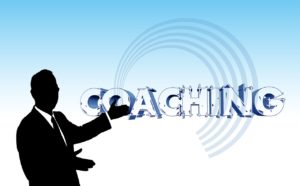 Executive coaching has been an activity religiously done by organizations for decades in the times past. In fact, it has grown to such a high degree that most participating businesses allocate a huge chunk of their yearly finances exactly on improving their most trusted staff. It was estimated that corporate America spent more than a billion dollars annually on coaching said staff.
Executive coaching has been an activity religiously done by organizations for decades in the times past. In fact, it has grown to such a high degree that most participating businesses allocate a huge chunk of their yearly finances exactly on improving their most trusted staff. It was estimated that corporate America spent more than a billion dollars annually on coaching said staff.
Why this is done is simply to affirm the position of importance an employee hold in such high risk – high reward places within the hierarchy. By having a mentor of a sort the employee is reminded of his blind spots and potential issues hampering with productivity at the workplace. He is also reminded about the importance of efficiency, leadership, as well as collective and personal advancement.
PREMIUM CONTENT: Preparing for the Next Recession
The relationship between the coach and the executive has to be mutually complicit. The coach has to objectively assess the executive and provide crucial feedback for improvement while the executive has to trust the coach’s judgment and of course, believe in improving himself. Below I will list a variety of benefits your executive may experience with hands-on executive coaching.
Clarity of Purpose and Heading
Employees who receive coaching receive a feeling of importance and value, motivating them to fulfill their professional ambitions. If people are in a slump or feel like nothing is going their way, a session with a coach can be a lot more rewarding than a dull meeting focusing on the negatives. What we are looking for is improvement from within, ways to get your staff to become self-motivated by their own ambitions and finding your business as a catalyst for such fulfillment.
Another area that should always be freshly polished is the purpose of the executive in question. Such positions entail working with a lot of tasks that vary in scope and expertise needed to solve them. This can lead many down a path to wasting their precious time and resources. The purpose a coach has in this situation is to monitor the effectiveness of the executive’s work and steer him or her toward the right path. Such fine-tuning is necessary for anyone in such a stressful position.
Enforcing Leadership
Being proficient in your field of work doesn’t always make you cut out to be a good executive. A lot of companies identify the cracks in their executives’ understanding of their subordinates’ emotional well-being and errors in communication. These can seriously infringe upon the way work is done and in some cases foster a toxic relationship that creates more tears in the system.
A lack of emotional intelligence is present when there is a clear lack in the ability to perceive, empathize and handle emotions within and within others. Coaches teach the nuances of reading body-language, eye movement, gestures and other subtle signals everyone is hinting when in a certain kind of mood. If your executive learns these skill this can lead to an increase in productivity and general cohesion of your work-unit.
Confident decision making
Making the person in charge feel confident enough to do what is necessary is key if you want to take your business goals from the drawing board into action. Executives that have a bad track record, especially in the short term, can feel like their game is off. If your playmaker can’t pass the balls, you won’t make any baskets.
As noted by many of business coaches and leaders, businesses that enforce the culture of positivity will lead to high performance under pressure. Your players just need to warm-up their hands again. A coach can talk to them, helping them break down their approaches and convince them that what they are doing is right and they just have to stick to their guns. With such an approach, your hard hitters will start delivering in no time.
Belief in success
Finally, this brings it all together. I’ve mentioned words like confidence and heading some paragraphs earlier. These are intrinsically connected to a belief system every employee (let alone executive) should have – that is a belief in success. Some say that it is enough for one to believe to achieve set goals. I firmly believe in that statement and so to a lot of executive coaches.
The structural pillar of such coaching methods is enforcing the belief in greatness in your executives. A lot of people are hampered by a lack of motivation when they reach such a high position. Keep in mind that your executives have been through thick and thin to reach their position. Some probably feel like they have achieved their goals, some may want to take their foot off the gas. Whatever the case is, executive coaching can create the spark that returns their old vigor or at the very least frees that space up for someone who wants it more.








